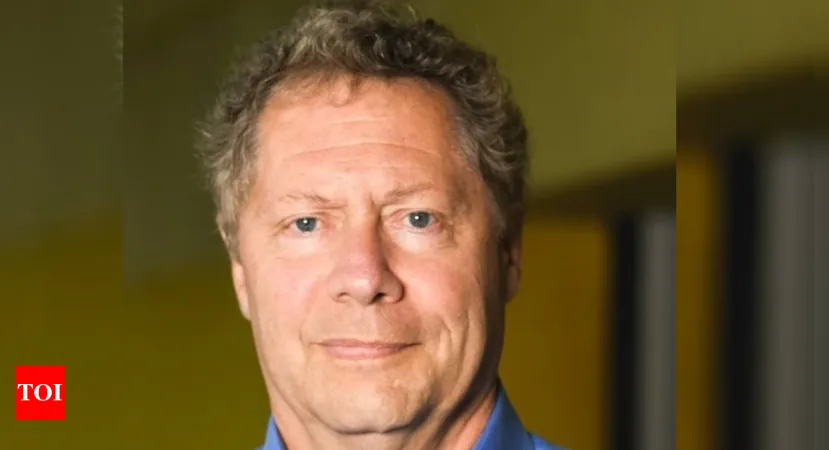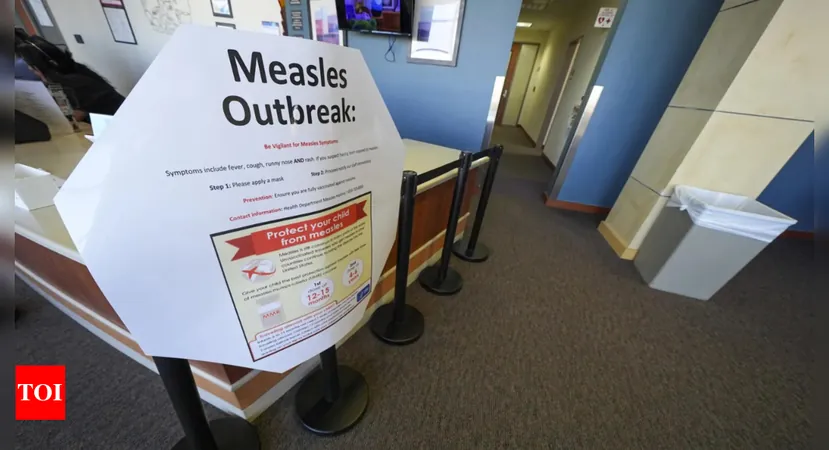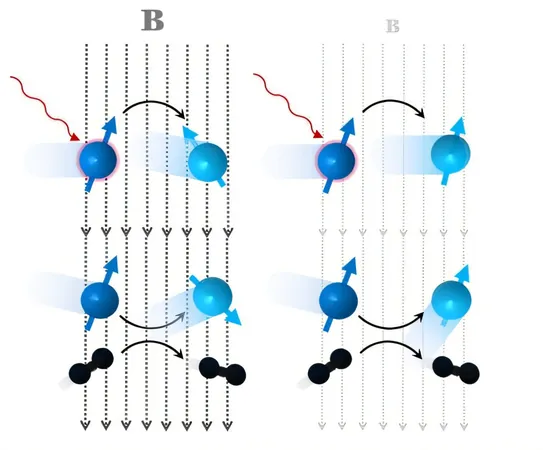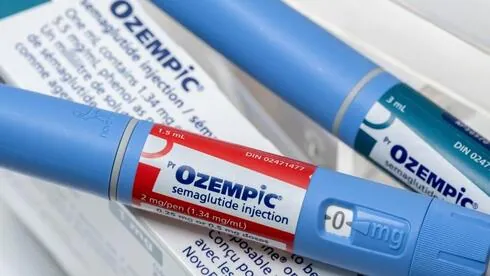
Trump's Funding Cuts Threaten Vaccination for 75 Million Children — An Impending Health Crisis!
2025-04-06
Author: Wei
The Ripple Effect of Funding Cuts on Global Health
Dr. Berkley recently discussed with the Sunday Times the sweeping implications of reduced funding to global health initiatives, especially those connected to the World Health Organization (WHO). While acknowledging the need for reform within the WHO, he asserted that cutting funds outright would cripple the organization’s ability to perform vital functions. The immediate consequence, he notes, is that crucial programs in some of the world’s poorest regions—ones responsible for delivering vaccines, diagnostics, and technical assistance—may collapse. This disruption could lead to increased mortality rates, the resurgence of infectious diseases, and heightened challenges in managing epidemics and antimicrobial resistance.
The role of the U.S. government, as Berkley points out, is pivotal. Abrupt funding changes hinder the sustainability of ongoing health initiatives, particularly in regions that rely heavily on foreign aid. With a shifting geopolitical landscape, wealthier nations may not have the capacity to fill the gap left by reduced American contributions, resulting in catastrophic outcomes for public health.
Gavi’s Pivotal Role in Child Vaccination
Berkley emphasized that Gavi plays a critical role in global vaccination efforts, supporting nearly 50% of the world's children in lower-income countries. This public-private partnership has achieved incredible milestones over the past 25 years, including vaccinating over 1.1 billion children and reducing vaccine-preventable deaths by 70%. Each investment in Gavi yields a staggering return of $54, considering the overall societal benefits.
Unfortunately, if U.S. funding for Gavi halts, an estimated 75 million children might miss out on routine vaccinations, which could lead to a resurgence of diseases that were previously under control, raising fears of widespread outbreaks. Moreover, advancements in vaccines for diseases like malaria and meningitis—especially critical targets for health in Africa—may be stymied without financial backing.
Preparing for Future Epidemics
Dr. Berkley also discussed the ongoing threats posed by epidemics and the emerging era of polyepidemics, particularly as climate change exacerbates public health risks. The movement of populations due to climate change can lead to new infectious diseases, as many pathogens originate from animal sources. With about 70% of new pathogens linked to animals, the risk of antimicrobial resistance escalates when antibiotics are misused. Therefore, it’s crucial for countries to invest in outbreak detection and mitigation strategies to prevent local health crises from escalating into global pandemics.
Innovative Solutions: The Serum Institute of India
The rollout of the malaria vaccine by the Serum Institute of India (SII) has been hailed as a groundbreaking advancement in the fight against malaria, which remains a leading cause of death among young children in Africa. With its affordability and scalability—being 60% cheaper than existing alternatives—this vaccine has the potential to save numerous lives. However, its success is contingent on sufficient funding and infrastructure support, both of which are currently at risk.
A Call to Action for Global Health
The current global health landscape is tumultuous, exacerbated by suddenly defunded programs such as India’s first transgender health clinic and the halting of the U.S. PEPFAR project that supported HIV patients. The abrupt termination of health services can have catastrophic consequences, particularly for vulnerable populations who may develop drug resistance in HIV treatments due to interrupted care.
Dr. Berkley’s insights serve as a clarion call: If immediate action isn’t taken to secure proper funding for vital health programs, we face a future where countless lives are endangered by preventable diseases. It’s a dangerous moment for global health, and the ramifications of funding cuts could lead to a less safe, less healthy world.



 Brasil (PT)
Brasil (PT)
 Canada (EN)
Canada (EN)
 Chile (ES)
Chile (ES)
 Česko (CS)
Česko (CS)
 대한민국 (KO)
대한민국 (KO)
 España (ES)
España (ES)
 France (FR)
France (FR)
 Hong Kong (EN)
Hong Kong (EN)
 Italia (IT)
Italia (IT)
 日本 (JA)
日本 (JA)
 Magyarország (HU)
Magyarország (HU)
 Norge (NO)
Norge (NO)
 Polska (PL)
Polska (PL)
 Schweiz (DE)
Schweiz (DE)
 Singapore (EN)
Singapore (EN)
 Sverige (SV)
Sverige (SV)
 Suomi (FI)
Suomi (FI)
 Türkiye (TR)
Türkiye (TR)
 الإمارات العربية المتحدة (AR)
الإمارات العربية المتحدة (AR)